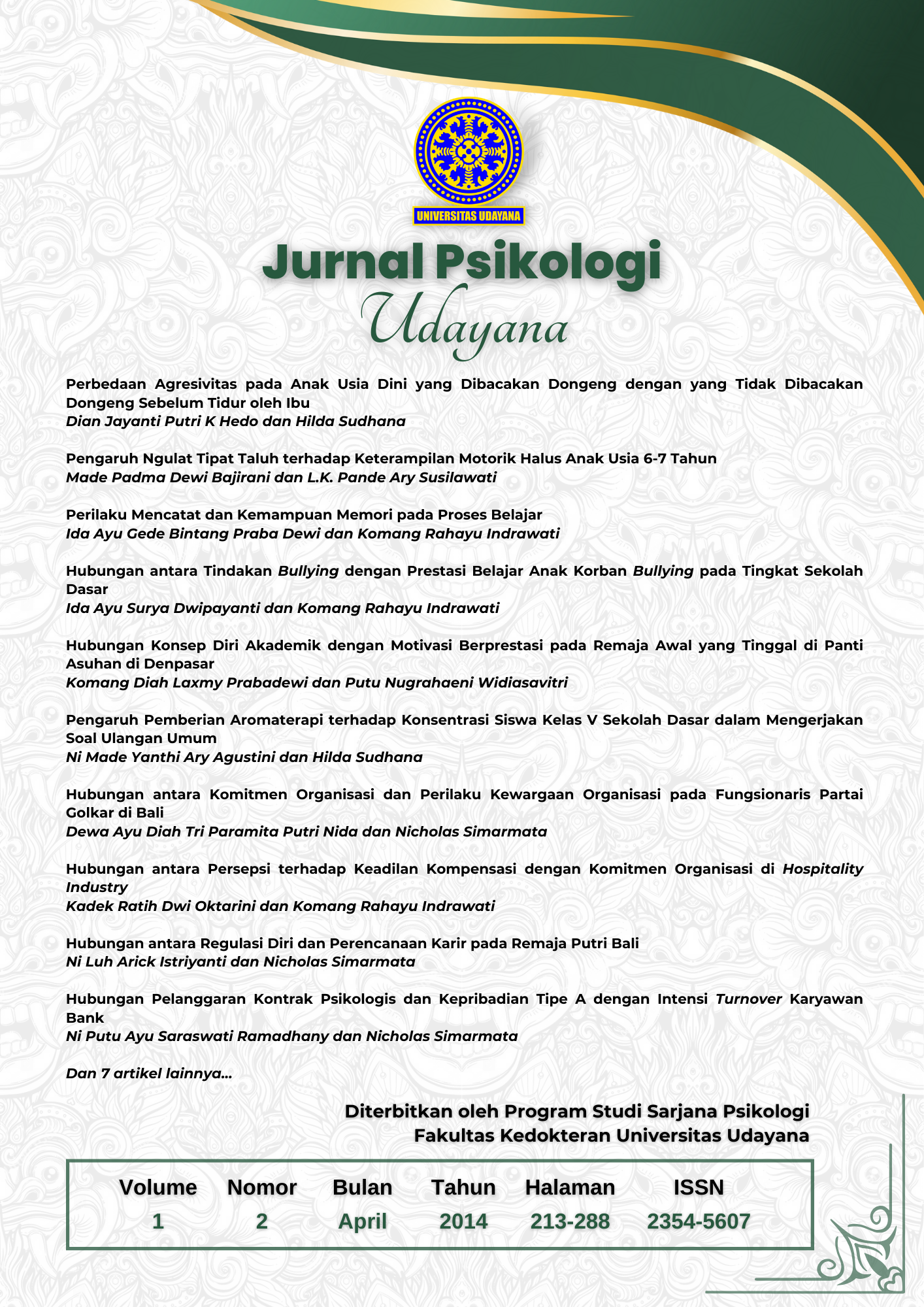Hubungan Antara Regulasi Diri dan Perencanaan Karir pada Remaja Putri Bali
Abstract
Adolescences have many developmental tasks. Some of them are getting involved into social role and capable of doing a proper career planning. When adolescences are faced by the strict culture, like Balinese Teenage Girls who involved into sekaa teruna organization, they have to actively participate in every cultural activity as a part of social role, and also doing career planning for their future’s preparation. In doing career planning, adolescences need the ability to manage their potential and retrieved information without ignoring their social roles. Therefore, Balinese Teenage Girls need to find the right way to do career planning and fulfill their social roles that are have a good self-regulation. Because of that researcher assumed that there is a positive relationship between self-regulation and career planning of Balinese Teenage Girls.
This research method is quantitative-correlation, using 135 subjects that are Balinese Teenage Girls who joined sekaa teruna organization in Badung and their age ranges from 15-20 years old. Method used for collecting the data is questionnaire which is self-regulation scale and career planning scale. The reliability of self-regulation variable is 0.916 and for the career planning variable is 0.911. The normality of self-regulation variable is 0.098 and for the career planning variable is 0.269. The linearity between self-regulation variable and career planning variable is 0.000. The determination coefficient is 0.354. The analysis method is Pearson product moment correlation techniques. The correlation coefficient is 0.595 with 0.000 probabilities. It is proved there is a positive relationship between self-regulation and career planning of Balinese Teenage Girls.
Keywords: Self-Regulation, Career Planning, Balinese Teenage Girls
Downloads
Authors who publish with this journal agree to the following terms:
- Authors retain copyright and grant the journal right of first publication with the work simultaneously licensed under a Creative Commons Attribution-ShareAlike 4.0 International License that allows others to share the work with an acknowledgement of the works authorship and initial publication in this journal.
- Authors are able to enter into separate, additional contractual arrangements for the non-exclusive distribution of the journals published version of the work (e.g., post it to an institutional repository or publish it in a book), with an acknowledgement of its initial publication in this journal.
- Authors are permitted and encouraged to post their work online (e.g., in institutional repositories or on their website) prior to and during the submission process, as it can lead to productive exchanges, as well as earlier and greater citation of published work (See The Effect of Open Access).













